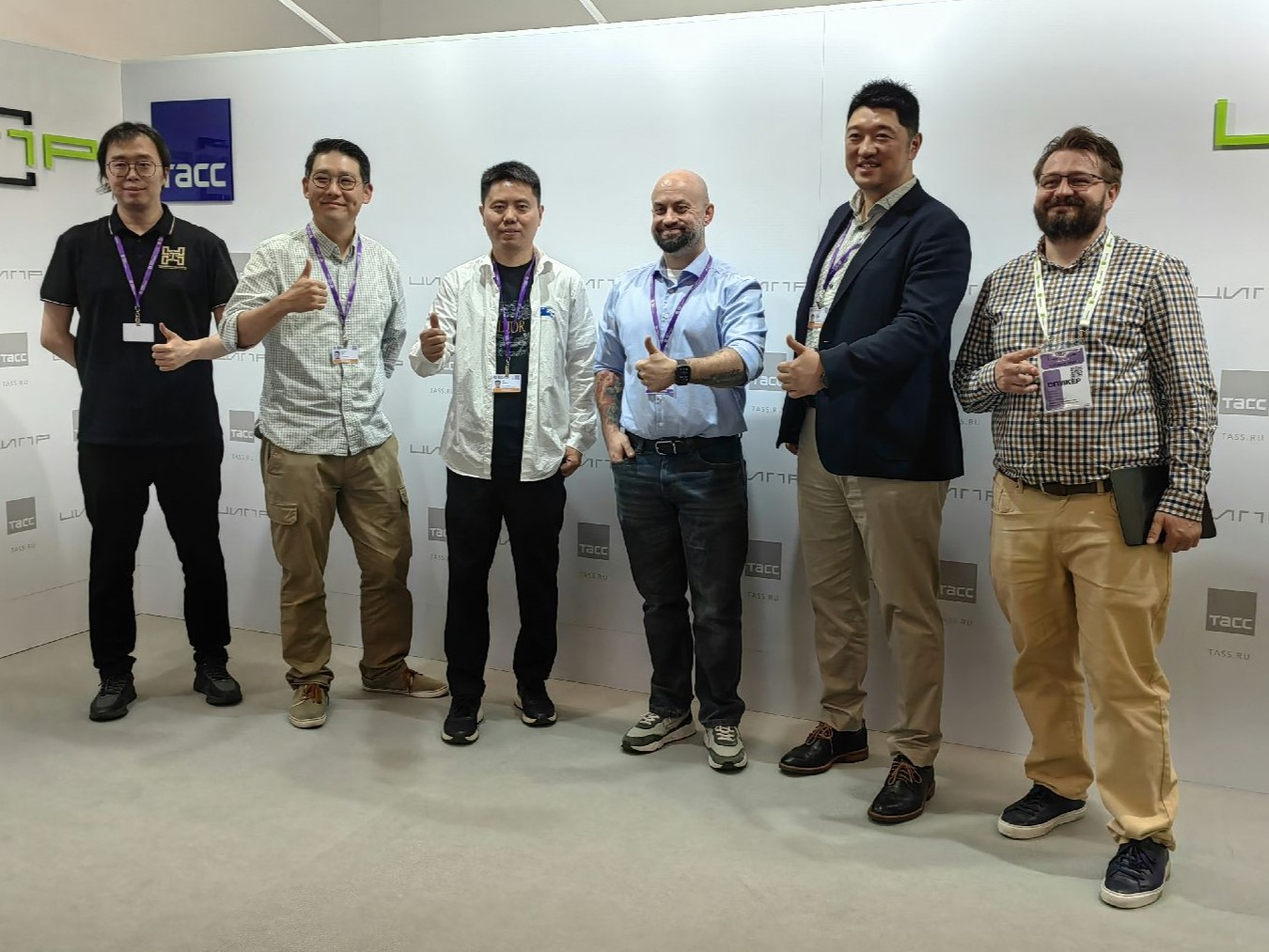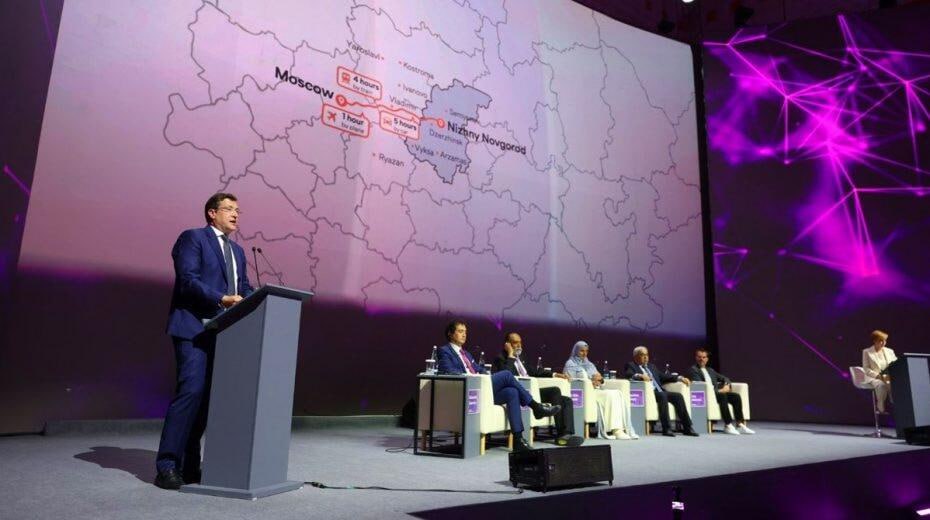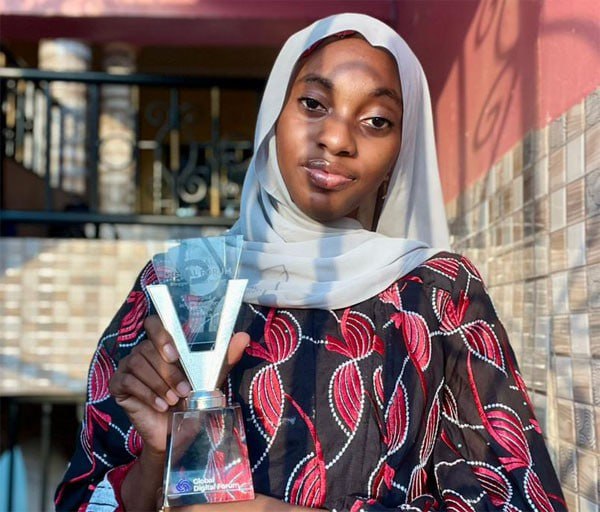Постоянные вызовы и ключевые стратегии для игровых разработчиков, стремящихся к международному успеху, стали центральной темой панельной дискуссия "Игровая индустрия: вызовы и лучшие практики выхода на новые рынки" под модераторством Александра Михеева, генерального директора АПРИОРИ. Дискуссия объединила ведущих мировых экспертов из Китая, Южной Кореи, России и других стран. Обсудив глобальную игровую индустрию стоимостью 188 миллиардов долларов, обслуживающую более 3.4 миллиарда игроков, участники детально разобрали сложный путь от локального успеха к глобальной значимости.
Михеев подчеркнул масштабы российской игровой индустрии и ее уникальное положение: рынок объемом в 2 миллиарда долларов, преодолевающий геополитические вызовы, развивающий локальные платформы, такие как VK Play и RuStore, и обладающий третьей по величине аудиторией в Steam. "Несмотря на вызовы, – отметил Михеев, – наши экосистемы развиваются, а ассоциации, такие как АПРИОРИ, являются жизненно важным связующим звеном между разработчиками, бизнесом и регуляторами в формировании национальных стратегий".
Блок 1: Выход на зарубежные рынки
Дискуссия стартовала с обсуждения серьезных барьеров, с которыми сталкиваются студии, выходящие за рубеж. Ли Цзе (Li Jie), заместитель председателя Комитета по киберспорту Internet Society of China (ISC), обозначил системные вызовы для китайских разработчиков в рамках трехкомпонентного подхода ISC (Политический мост, Технологические основы, Глобальный диалог). Он выделил ключевые препятствия:
● Культурные различия: Необходимость выйти за рамки поверхностного перевода к глубокому пониманию "поведенческого UX" и избеганию религиозных/исторических недопониманий.
● Регуляторная сложность: Навигация в различных системах рейтингов (PEGI, ESRB, GRAC) и строгих законах о суверенитете данных (GDPR, Китайский DSL).
● Технологические зависимости: Снижение рисков в цепочке поставок игровых движков и управление высокими операционными затратами на локализацию.
Ли Цзе подчеркнул ключевой сдвиг в индустрии: "От 'дикой экспансии' к 'точечному освоению'. Успех требует культурного резонанса как основы, собственных технологий как дифференциатора и соответствия нормам как безусловного ключа к доступу на рынок".
Дэниэл Лиу (Daniel Liu), основатель HURA (Китай), представил убедительную альтернативную модель через свою уникальную платформу "цифрового спорта", сочетающую реальные гонки, дистанционное управление и игровые элементы. Лиу выделил, как сама концепция HURA – союз азарта, скорости и соревнования – изначально снижает культурное трение. Их экспансия на зарубежные рынки опиралась на надежные технологии и цифровую маркетинговую стратегию, ориентированную на органический контент в соцсетях, и вовлечение сообщества. "Технологии преодолели физические расстояния, – заявил Лиу, – а цифровой маркетинг преодолел психологические барьеры".
Чжан Сюй (Xu Zhang), генеральный директор Doujing Technology (Китай), представил дорожную карту для адаптации к рынку, подчеркнув многоуровневый подход:
● Языковая локализация: Обеспечение соблюдения контекста, а не только буквальной точности.
● Дизайн персонажей: Адаптация одежды (напр., для Ближнего Востока) и избегание чувствительной символики.
● Сюжет и Окружение: Контекст исторических, политических и религиозных элементов.
● Оптимизация UX/UI: Регионально-адаптированные макеты, иконки и схемы управления.
● Озвучка: Приоритет аутентичности диалектов и местной манеры речи.
Чжан Сюй дополнил это проактивной стратегией сертификации: тщательное изучение регуляторики (SAPPRFT, GDPR) в сочетании с ранним и итеративным взаимодействием с агентствами. Его формула: "Глубокая культурно-правовая локализация + проактивные отношения с регуляторами = успешный выход на рынок".
Блок 2: Локализация и культурная адаптация
Ким Си У подчеркнул, что современная локализация требует "комплексного подхода, адаптированного под каждый рынок, охватывающего операции, маркетинг и вовлечение пользователей", что иллюстрируется текущей работой Qroad по локализации российской игры Stalcraft:X для Кореи.
Чжан Сюй привел предостерегающий пример: китайская игра, запущенная на Ближнем Востоке без адаптации религиозных символов или дизайна персонажей, спровоцировала негативную реакцию пользователей, санкции платформы и окончательное удаление. "Локализация – это не только про язык; это про культурную адаптацию и уважение", – подчеркнул Чжан Сюй. Его решение? Создание локальных команд в чувствительных регионах с местными дизайнерами и разработчиками для аутентичной адаптации с нуля.
Хишам Нуху (Hicham Nouhou), международный эксперт игровой индустрии, подтвердил, что глубокая локализация фундаментальна для успеха AAA-проектов во всем мире. "Язык – это ключевой фактор продаж... Крайне важно постоянно взаимодействовать с игровыми сообществами", – заявил Нуху, выступая за партнерство с локальными знаменитостями и продвижение UGC (пользовательского контента). Он подчеркнул необходимость культурной релевантности и чувствительности, демонстрируя знаковые примеры:
● Более милый редизайн Crash Bandicoot для Японии.
● Избегание прямых религиозных ассоциаций в Final Fantasy (напр., замена 'церкви' на 'клинику').
● Празднование PUBG Mobile разнообразных локальных/региональных событий (Рамадан, Навруз).
● Замена шампанского на размахивание флагами в американской версии Super Mario Kart.
Блок 3: Включение Экосистем – Платформы, Ассоциации и Политика
Финальный сегмент исследовал жизненно важные структуры поддержки, обеспечивающие глобальный охват. Алексей Каленчук из Фонда "Сколково" обрисовал развивающуюся инфраструктуру поддержки в России, позиционируя "Сколково" как один из ключевых центров, способствующих инновациям и связям в сложных условиях.
Ли Цзе детализировал мощные механизмы институциональной поддержки в Китае на фоне трансформации рынка (зрелая аудитория "хардкорных" геймеров, внедрение ИИ, бум экспансии на Ближний Восток):
● Политическая координация: Саморегулирование с "светофорной" системой рейтингов контента.
● Реформа образования: дипломы по разработке игр в 80+ университетах и государственная сертификация киберспортивных дисциплин.
● Технологические приоритеты: Инструменты AIGC (генеративный ИИ), сокращающие затраты на локализацию, легкие движки для развивающихся рынков.
● Глобальное сотрудничество: Инициативы вроде Азиатского Альянса Разработчиков Игр с общими базами данных локализации.
Ли Цзе отстаивал "раннее взаимодействие с регуляторами", "технологии, соответствующие рынку" и "аутентичную культурную привлекательность" как основные принципы. Он выступил с призывом к совместным действиям: система раннего предупреждения о регуляторных изменениях, инструменты культурного соответствия с открытым исходным кодом и совместные академические программы. "Когда игры демонстрируют искусство Дуньхуана, славянский эпос, фольклор Амазонии, арабские традиции, – рассказал он, – технология достигает своей высшей цели".
Дэниэл Лиу завершил обсуждение поддержки, представив платформы цифрового спорта как уникальные "трамплины" для глобальной экспансии. Модель HURA использует платформенные технологии (дистанционное управление, передача данных, управление событиями), чтобы преодолеть ограничения традиционного спорта. Ключевым моментом, по словам Лиу, является сотрудничество в экосистеме: "Технологии – это фундамент, платформа – это инструмент, а сотрудничество в экосистеме – это ускоритель".
Заключение: Точность, глубина и сотрудничество
Спикеры пришли к единому мнению: достижение успеха на глобальной игровой арене требует выхода далеко за пределы простого портирования или перевода. Современный подход – это:
● Глубокое исследование рынка и адаптированные стратегии вместо универсальных подходов.
● Интеграция культурной, операционной, маркетинговой и коммуникационной адаптации с самого начала разработки.
● Раннее взаимодействие с регуляторами и выстраивание отношений с ними.
● Эффективное использование платформ, ассоциаций и государственных структур поддержки.
● Использование ИИ и специализированных инструментов для управления затратами.
Александр Михеев резюмировал, что путь к глобальному успеху сложен, но преодолим. Инсайты – от системных рамок Китая и России до тяжело заработанных уроков отдельных студий и универсальных принципов культурного уважения – предоставляют полезную справку для любого игрового разработчика, решившего выйти на международный уровень. В глобальной индустрии стоимостью 188 миллиардов долларов понимание и адаптация к местным правилам – это не просто лучшая практика; это единственный способ победить.




